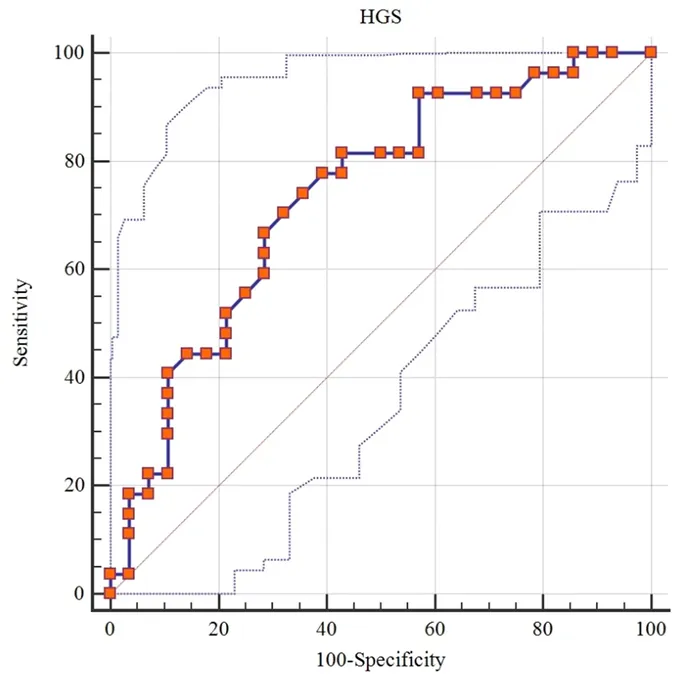
New Study Reveals Handgrip Strength and Menopause as Key Predictors of Cardiovascular Risk in Obese Women!
2025-04-04
Author: Nur
Introduction
A groundbreaking study has identified a crucial link between handgrip strength (HGS), menopause, and cardiovascular risk (CVR) in women battling obesity. This research is shedding light on a simple yet effective tool for early detection and prevention of cardiovascular issues within this vulnerable population.
Why This Study Matters
Cardiovascular disease (CVD) remains one of the leading causes of mortality globally, and the association with obesity amplifies risk factors like hypertension, type 2 diabetes, and dyslipidemia. Given the escalating obesity crisis—projected to affect 167 million individuals by 2025 according to the World Health Organization—understanding these relationships is vital for public health, particularly for women who face unique risks during menopause.
Study Overview
Conducted from April to December 2022, the study included 55 women aged 40 to 65 who met the criteria for obesity with a Body Mass Index (BMI) of 30 kg/m² or higher. Utilizing the Framingham Global Risk Score, researchers classified participants into low-risk and moderate/high-risk categories, assessing their HGS alongside various clinical and biochemical parameters.
Key Findings
- Nearly half of the participants (49%) were classified at moderate to high cardiovascular risk. - Significant associations were found between HGS and menopause status with CVR: - Women who were post-menopausal showed increased cardiovascular risk. - Handgrip strength emerged as a protective factor; higher HGS correlated with lower CVR. - An optimal cutoff point for HGS in predicting CVR was identified at ≤37.8 kg.
The Science Behind It
Both menopause and poor muscle strength can substantially influence cardiovascular health. Falling estrogen levels during menopause can lead to unfavorable changes in body composition, such as an increase in abdominal fat which exacerbates cardiovascular risk. Conversely, women with better handgrip strength generally experience improved cardiovascular health, highlighting the importance of muscle strength as a predictor of overall health outcomes.
The Importance of Handgrip Strength
HGS tests are quick, simple, and cost-effective, making them an accessible screening tool for healthcare providers. With established cutoffs for both men and women, understanding the implications of HGS measurements can aid in early detection of CVR, particularly in populations at high risk due to obesity and age.
Conclusions & Future Directions
This study advocates for the inclusion of HGS measurement in routine clinical assessments for women with obesity. With the potential to refine cardiovascular risk screening and subsequent healthcare interventions, this research paves the way for a proactive approach to cardiovascular health. As we forge ahead in understanding the complexities of obesity and its ramifications on women's health, further research is imperative. Exploring these findings in broader populations and focusing on the implications of muscle strength on cardiovascular health can empower better prevention strategies, reshaping how we approach healthcare for women globally.
Don't Miss Out!
Stay tuned for more insights on how simple lifestyle changes, including strength training, can revolutionize health outcomes for women facing obesity, especially during the challenging transitions of menopause!


 Brasil (PT)
Brasil (PT)
 Canada (EN)
Canada (EN)
 Chile (ES)
Chile (ES)
 Česko (CS)
Česko (CS)
 대한민국 (KO)
대한민국 (KO)
 España (ES)
España (ES)
 France (FR)
France (FR)
 Hong Kong (EN)
Hong Kong (EN)
 Italia (IT)
Italia (IT)
 日本 (JA)
日本 (JA)
 Magyarország (HU)
Magyarország (HU)
 Norge (NO)
Norge (NO)
 Polska (PL)
Polska (PL)
 Schweiz (DE)
Schweiz (DE)
 Singapore (EN)
Singapore (EN)
 Sverige (SV)
Sverige (SV)
 Suomi (FI)
Suomi (FI)
 Türkiye (TR)
Türkiye (TR)
 الإمارات العربية المتحدة (AR)
الإمارات العربية المتحدة (AR)